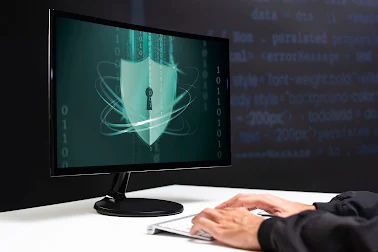In today's digital era, the sheer volume of emails generated daily poses significant challenges for organizations. Efficient email management is not just about organizing communication but ensuring compliance with regulations and simplifying retrieval processes. Email archiving solutions have emerged as essential tools in this regard. This article explores the importance of email archiving, its benefits, and how organizations can navigate these solutions for compliance and easy retrieval.
The Importance of Email Archiving
Email archiving involves capturing and storing email communications to ensure they are preserved in a secure, accessible, and organized manner. The importance of email archiving cannot be overstated due to the following reasons:
1. Regulatory Compliance
Many industries are subject to strict regulatory requirements that mandate the retention of email communications. Regulations such as GDPR, HIPAA, and SOX require organizations to maintain records of electronic communications for specified periods. Failure to comply with these regulations can result in severe penalties and legal repercussions.
2. Legal Discovery
In the event of litigation, organizations must be able to produce relevant email communications as part of the legal discovery process. Email archiving solutions ensure that emails are stored in a tamper-proof manner and can be retrieved quickly and accurately when needed.
3. Data Preservation
Email archiving helps preserve important business communications and ensures that critical information is not lost. This is particularly important for organizations that need to maintain historical records for reference, audits, or internal investigations.
Benefits of Email Archiving Solutions
Implementing an effective email archiving solution offers numerous benefits to organizations:
1. Improved Compliance
Email archiving solutions ensure that organizations meet regulatory requirements by automating the retention and management of email communications. These solutions provide audit trails and compliance reports that demonstrate adherence to regulations.
2. Enhanced Retrieval
With advanced search capabilities, email archiving solutions allow users to quickly locate specific emails or attachments. This significantly reduces the time and effort required to retrieve important communications, making the process more efficient.
3. Storage Optimization
Email archiving helps optimize storage by moving older emails to an archive, freeing up space on the primary email server. This reduces the risk of server overloads and improves overall system performance.
4. Security and Integrity
Email archiving solutions offer robust security features to protect archived emails from unauthorized access and tampering. This ensures the integrity and confidentiality of sensitive communications.
5. Cost Savings
By streamlining email management and reducing the burden on IT resources, email archiving solutions can result in significant cost savings. Organizations can avoid the expenses associated with regulatory fines, legal disputes, and storage upgrades.
Navigating Email Archiving Solutions
Choosing the right email archiving solution involves understanding the specific needs of your organization and evaluating the features and capabilities of available options. Here are some key considerations:
1. Identify Compliance Requirements
Start by identifying the regulatory requirements that apply to your industry. Ensure that the email archiving solution you choose can meet these requirements, including retention periods, audit trails, and data protection standards.
2. Evaluate Search and Retrieval Capabilities
An effective email archiving solution should offer advanced search and retrieval capabilities. Look for features such as keyword searches, filtering options, and the ability to retrieve emails based on specific criteria.
3. Assess Storage and Scalability
Consider the storage capacity and scalability of the email archiving solution. Ensure that it can handle the volume of emails generated by your organization and can scale as your needs grow.
4. Review Security Features
Security is paramount when it comes to email archiving. Ensure that the solution provides encryption, access controls, and audit logs to protect archived emails from unauthorized access and tampering.
5. Integration with Existing Systems
Choose an email archiving solution that integrates seamlessly with your existing email systems and IT infrastructure. This will simplify implementation and reduce the risk of disruptions.
6. Evaluate Vendor Support and Services
Consider the level of support and services offered by the vendor. Ensure that they provide comprehensive training, technical support, and regular updates to keep the solution up-to-date.
Implementing Email Archiving Solutions
Once you have chosen an email archiving solution, follow these steps to implement it effectively:
1. Plan and Prepare
Develop a detailed implementation plan that outlines the steps and timelines for deploying the email archiving solution. Prepare your IT team and users for the transition by providing training and resources.
2. Configure and Integrate
Configure the email archiving solution to meet your organization's specific requirements. Integrate it with your existing email systems and ensure that it is set up to capture and archive all email communications.
3. Migrate Existing Emails
If you have existing emails that need to be archived, plan and execute the migration process. Ensure that all historical emails are captured and stored in the new archiving system.
4. Monitor and Maintain
Once the email archiving solution is in place, monitor its performance and ensure that it continues to meet your organization's needs. Regularly review and update the configuration to address any changes in regulatory requirements or business processes.
5. Train and Educate
Provide ongoing training and education to users to ensure they understand how to use the email archiving solution effectively. This will help maximize its benefits and ensure compliance with organizational policies.
Conclusion
Email archiving solutions are essential tools for managing email communications, ensuring compliance, and simplifying retrieval processes. By understanding the importance, benefits, and implementation steps of email archiving, organizations can navigate these solutions effectively and enhance their overall cybersecurity posture. Investing in a robust email archiving solution is not just a regulatory necessity but a strategic move towards securing and managing valuable business communications in the digital age.





No comments:
Post a Comment